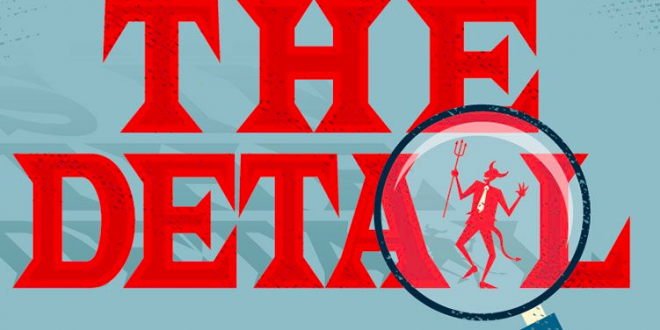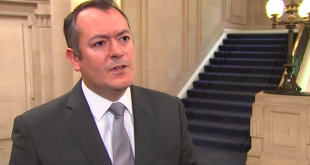
As I write this, I am greatly looking forward to moderating the “Brand Control – Working with Affiliates” panel session during the “Digital Marketing Day” of the ground-breaking SBC Digital Summit.
This will be a highly topical session because, looking back on what has happened in gaming regulatory terms since the commencement of the COVID-19 lockdown in the UK and elsewhere (including the 14 April 2020 credit card gambling ban), it is once again issues relating to the marketing and advertising of gambling that have particularly grabbed not only the industry, but also the national media, headlines.
The long-awaited “Final Synthesis Report: The Effect of Gambling Marketing and Advertising on Children, Young People and Vulnerable Adults” – written by Ipsos MORI on behalf of GambleAware – was published at the end of March. Not surprisingly it concludes that exposure to gambling advertising, including on social media, can have an impact on attitudes towards the prevalence and acceptability of gambling and, in turn, the likelihood that a child, young person or vulnerable adult will gamble in the future.
Amongst other things, it recommends (a) the need for clearer safer gambling messages and campaigns, to increase the awareness of risk of gambling to children and young people, (b) improving safer gambling education initiatives, extending to parents as well as children and young people, (c) reducing the appeal of gambling advertising by addressing specific features that may appeal to children while also avoiding references to confusing financial incentives, and (d) improved use of advertising technology and age screening tools, to minimise the exposure of such content to children, young people and vulnerable adults.
The use of Ad-tech for the above purpose has come very much more to the fore since September 2019, when it appeared as a recommendation within an “Advice on actions to reduce online harms” issued by the Advisory Board for Safer Gambling, and the following month when it first started featuring in speeches by the Gambling Commission’s CEO, Neil McArthur.
Just six months after that, the ‘Safer Advertising Online’ Working Group (led by Sky Betting & Gaming) has responded to the Commission’s “Advertising technology challenge” – aimed at reducing the amount of online advertising seen by children, young people and vulnerable adults – by developing the following commitments intended to be adopted across the industry as soon as possible, enshrined in the Gambling Industry Code for Socially Responsible Advertising and to become effective by no later than July 2020 (when the Commission will start “holding operators to account”):
- A common list of negative search terms (e.g. how do I self-exclude from gambling?) and suppression websites, which will help shield vulnerable groups from online gambling ads.
- Better and more consistent use of customer data to ensure paid-for-ads are targeting away from vulnerable groups across social media platforms, instead of targeting for business.
- Implementation of an approach that means gambling advertising is only targeted at +25 age in social media and “Pay Per Click” advertising where platform facilities permit (intended to protect young people and increase confidence in social media platforms’ own age-gating).
- Age-gating YouTube channels and content.
- Adopting and rolling out to all affiliates a code of conduct which will be amended and updated on a regular basis to ensure all measures undertaken by the industry will be implemented equally by affiliates.
In terms of future developments, this working group has also committed to:
- establishing a permanent cross-industry Ad-tech Forum to ensure an on-going focus on making further progress in this area, including conducting and evaluating trials of advertising technology,
- continuing the proactive engagement with a wide range of stakeholders (including platforms) on agreed areas of work, with the aim of continually setting the highest standards in responsible digital advertising and marketing and ensuring that all relevant technology is utilised to achieve that,
- working with the Gambling Commission to publish and promote consumer advice, and working with online platforms and broadcasters to identify a more effective, simple and consistent approach with regard to blocking gambling advertising, and
- committing to monitoring and evaluating all actions to ensure only effective solutions are pursued.
Not surprisingly, given the Gambling Commission’s clearly expressed support for the Ad-tech initiative within its recently published Business Plan for 2020-21, it has welcomed the above commitments. It has also welcomed the first steps taken by both (a) the ‘Use of VIP incentives’ Working Group (led by GVC Holdings) to develop an industry code addressing poor practices around the treatment and incentivisation of high value and high-spending customers, and (b) the ‘Safer Products’ Working Group (led by Scientific Games and Playtech) to develop an industry code for responsible product and game design (albeit that in the case of this latter working party, the Commission wants to see its work “go further and faster, in particular around using demographics and behaviours to indicate risk”).
Media and parliamentary concern about gambling advertising during the COVID-19 lockdown has most certainly not been lacking, culminating in DCMS Minister Nigel Huddleston MP urging the gambling sector to do all it can at this time to tackle any heightened risk of problem gambling. The almost immediate response from the Betting & Gaming Council – that has recently taken over the work previously undertaken by the Senet Group – was an announcement that as soon as possible (but in any event no later than Thursday 7 May 2020), all of its members will – for a period of 6 weeks and at a minimum until 5 June – voluntarily remove all of their TV and radio gaming advertising in the UK during the remaining period of the lockdown.
This latest BGC announcement is in addition to its Ten Pledge ‘Action Plan’ for Safer Gambling, announced at the end of March 2020. Its success can be judged from a subsequent tweet from the Minister saying “We must work together to protect the most vulnerable from gambling harm. I appreciate the moves by the gambling sector to recognise the heightened risks of problem gambling during the coronavirus lockdown”.
That said, read literally, the BGC gaming advertising announcement indicates a cessation by its members of solely gaming product advertising (i.e. advertising of casino and bingo products), which would potentially leave open the door for continued betting advertising on TV and radio. The BGC may yet confirm the position in this respect. It also remains to be seen whether this voluntary cessation will lead to a marked upsurge in gaming product advertising online.
Advice and guidance about gambling advertising have also not been lacking since the lockdown commenced.
The Advertising Standards Authority has published separate items of advice entitled “What a slot of responsibility! Gambling ads and the CAP code” and “The marketing of gambling on eSports”, whilst also encouraging consumers to report gambling advertising complaints during the lockdown.
The European Gaming & Betting Association has issued “Guidance on safer online gambling and responsible advertising” and the first ever “Pan-European Code For Responsible Advertising For Online Gambling”.
The UK Gambling Commission has followed up January 2020’s Twitter Consumer Guide with (a) a personal warning message from Neil McArthur to online gambling operators about the regulator’s expectations of its licence-holders and (b) “Advice to consumers on how gambling companies should keep you safe while betting online”.
Just in case any UK licensed operators are thinking of ignoring the Commission’s requirements, they should bear in mind that the record single payment in lieu of a financial penalty imposed by the Commission has recently risen to £13million. They might also want to take note of the regulator’s recent enforcement action suspending Triblebet’s operating licence and imposing a £740,000 fine. This followed suspension by the Commission of two other remote operating licences for failure to participate in GAMSTOP by 31 March 2020.
However, it is not only UK licensed gambling operators who have provoked parliamentary ire. The Gambling Commission has itself come under fire from the House of Commons Public Accounts Committee that, following publication in February 2020 of a National Audit Office report criticising the Commission, has commenced an Inquiry entitled “Gambling regulation: problem gambling and protecting vulnerable people”.
Neil McArthur came in for a very tough ride from MPs when he gave oral evidence before that committee on 27 April 2020. It is highly likely that questions posed to him whilst he gave evidence will have accounted for the Commission’s subsequent decision to pay to GambleAware £9million from funds it had received from regulatory settlements in order to help charities providing treatment and support for people experiencing gambling harm during the COVID-19 crisis.
What should also be noted is that, whilst giving oral evidence, in answer to a question about how he can demonstrate the effect of increased enforcement action against gambling operators, McArthur said that “there has been a noticeable change in tone at the top on the part of major operators how they commit themselves to safer gambling – they get it and understand the need – and a shift in mindset from the language of responsible gambling (where the onus is on the individual to keep themselves safe) to safer gambling …. an acceptance of their responsibility to keep players safe”.
That’s worth bearing in mind with the government review of the Gambling Act 2005 still set to commence in the not too distant future. Given the inevitable criticisms that will be heaped upon the gambling industry and regulator alike when that review takes place with calls from some for a new regulator with even greater enforcement powers, it may yet be a case of the industry coming to regard the Gambling Commission as “better the devil you know ….”.
I will finish with a potential glimmer of encouragement for the sector, namely the announcement by the Parliamentary All-Party Betting & Gaming Group – self-proclaimed as “the only All Party Group to support the whole UK gambling industry” – that it has already launched its own such review “to ensure an evidence-based submission can be submitted to the government”. Who can possibly argue against that?
____________
___________________
David Clifton – Director – Clifton Davies Consultancy Limited










